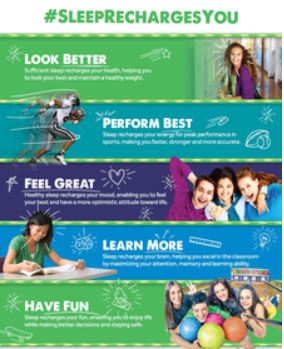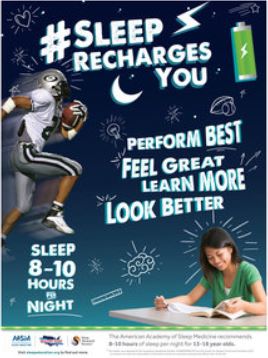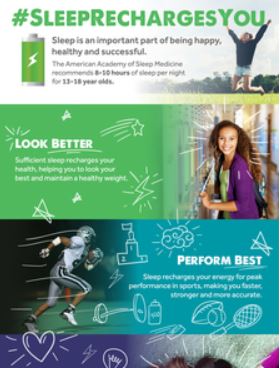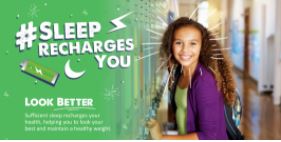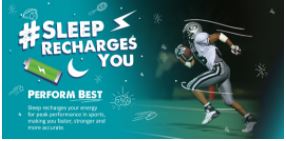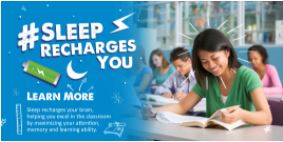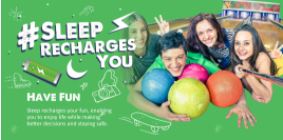Sleep Recharges You: Educator Resources
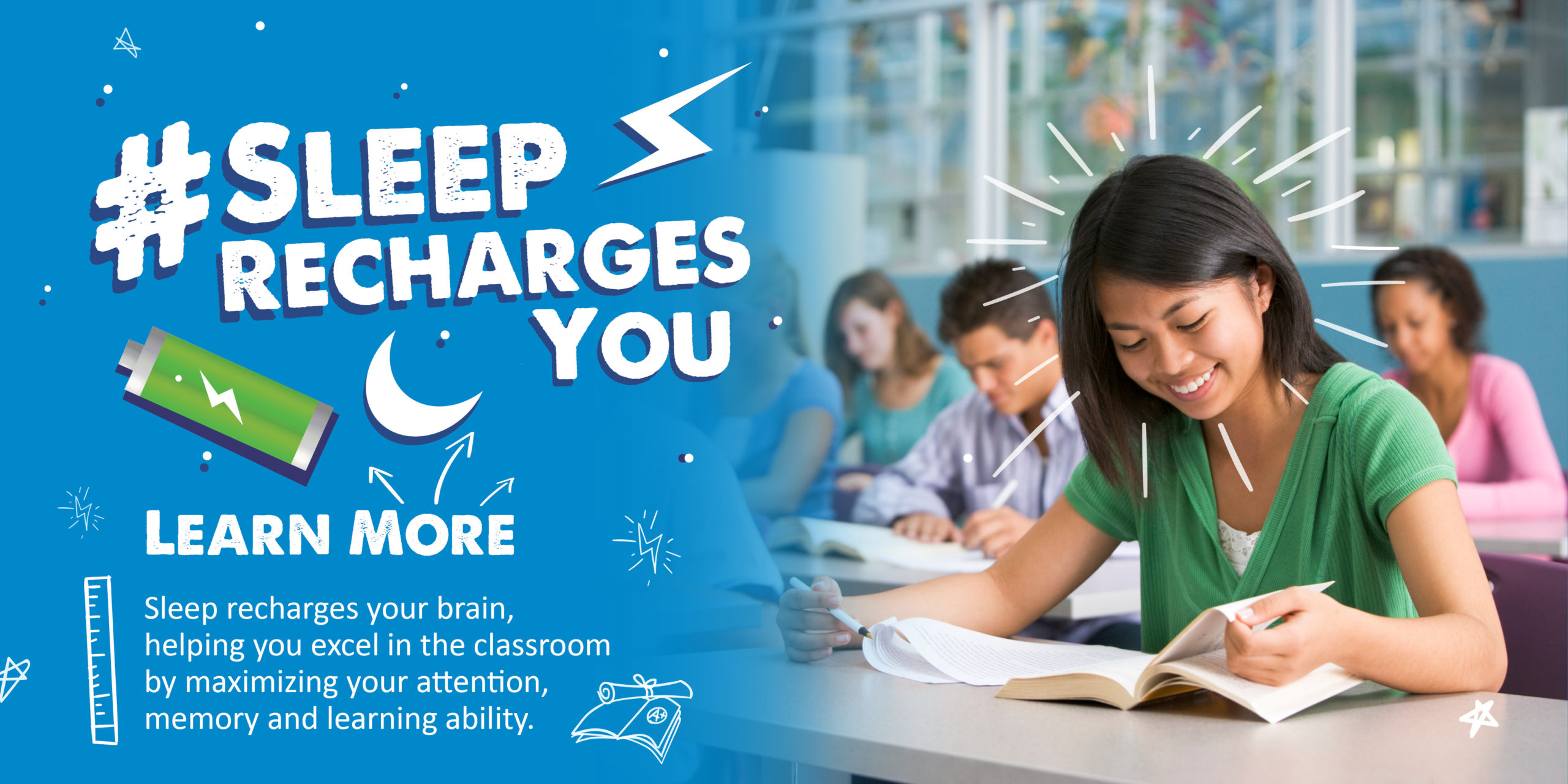
Sleep is the power source that recharges students during the night so they can thrive during the day. Teachers, school nurses, counselors, and coaches can help us share the “Sleep Recharges You” message with children and teens. The American Academy of Sleep Medicine has compiled this collection of free lesson plans, classroom activities, and resources about sleep and health. Use these tools to help students understand the importance of sleep!
Sleep Recommendations
“Sleep Smart” Lesson Plan
Grades: 3-5
Subject Area: Language Arts and Health
Help your students get a good night’s sleep — and improve their physical and mental health at the same time. This teacher’s guide and classroom activities were developed by the American Academy of Sleep Medicine in partnership with Young Minds Inspired, the nation’s leading provider of free educational outreach programs. The activities include tips for establishing good sleep habits and ideas to extend the learning by involving family members.
“Sleep Right, Sleep Tight” Lesson Plan
Grades: 6-8
Subject Area: Health and Wellness
Raise awareness about the connection between sleep and overall health with standards-based activities that will teach your students about the physical and mental benefits of proper sleep. The activities include tips for establishing good sleep habits and ideas to extend the learning by involving family members.
“Circadian Rhythms and Sleep” Lesson Plan
Grades: 6-12
Subject Area: Science and Health
The Spring 2020 issue of the Pathways student magazine focused on the science of sleep. Pathways is developed by Scholastic in partnership with the National Institute of General Medical Sciences (NIGMS). The circadian rhythms issue comprises a student magazine, teaching guide, activities, and videos. Educators in the U.S. also can order up to 100 free print copies from NIGMS.
“Sleep 101” Education Program
Grades: 7-12
Subject Area: Science and Health
The online, interactive Sleep 101 education program was developed by the non-profit organization Healthy Hours in collaboration with sleep experts from Harvard Medical School and Brigham & Women’s Hospital. The program — which takes about 25 to 30 minutes to complete — uses videos, activities, and games to provide a broad survey of the many ways that sleep affects life in high school. It also provides practical tips on how to improve sleep quality. The high school version of the program is currently available at no cost to students, teachers, and the public.
“Sleep” Lesson Plan
Grades: 9-12
Subject Area: Health
Sleep affects not only how much energy we have, but also our abilities to learn, be creative, and play sports. This lesson plan was developed by the Nemours Foundation through its KidsHealth in the Classroom initiative. As part of the “Human Body Series,” it will help your students understand how the human body works. It includes a teacher’s guide, sleep storyboard and sleep log activities, and a quiz.
“Sleep Well” Education Program
Grades: 9-12
Subject Area: Language Arts, Health and Wellness
Raise student awareness about the connection between sleep and physical and mental well-being with standards-based activities that will present the facts on the benefits of developing healthy sleep habits, challenge students to evaluate their own sleep behaviors, and provide them with tips to develop their own personalized plan for a good night’s sleep. This program includes:
Classroom Activities
- Annual High School Video Contest – American Academy of Sleep Medicine
- Cleveland Adolescent Sleepiness Questionnaire – Case School of Medicine
- Sleep Diary – American Academy of Sleep Medicine
- Teen Drowsy Driving Skit – American Academy of Sleep Medicine
- Doze browser-based app for teens & young adults – Ryerson University | Canadian Institutes of Health Research
Classroom Presentations
Dangers of Drowsy Driving (PowerPoint file) – American Academy of Sleep Medicine
Careers in Sleep (PowerPoint file) – American Academy of Sleep Medicine
Educational Video
Help students understand why teenagers are biologically wired to be “night owls” who prefer to stay up late and sleep late. “Why Are Teens So Sleepy?” highlights the challenges teenagers face to get sufficient sleep and provides advice on how teens can develop positive sleep habits.


